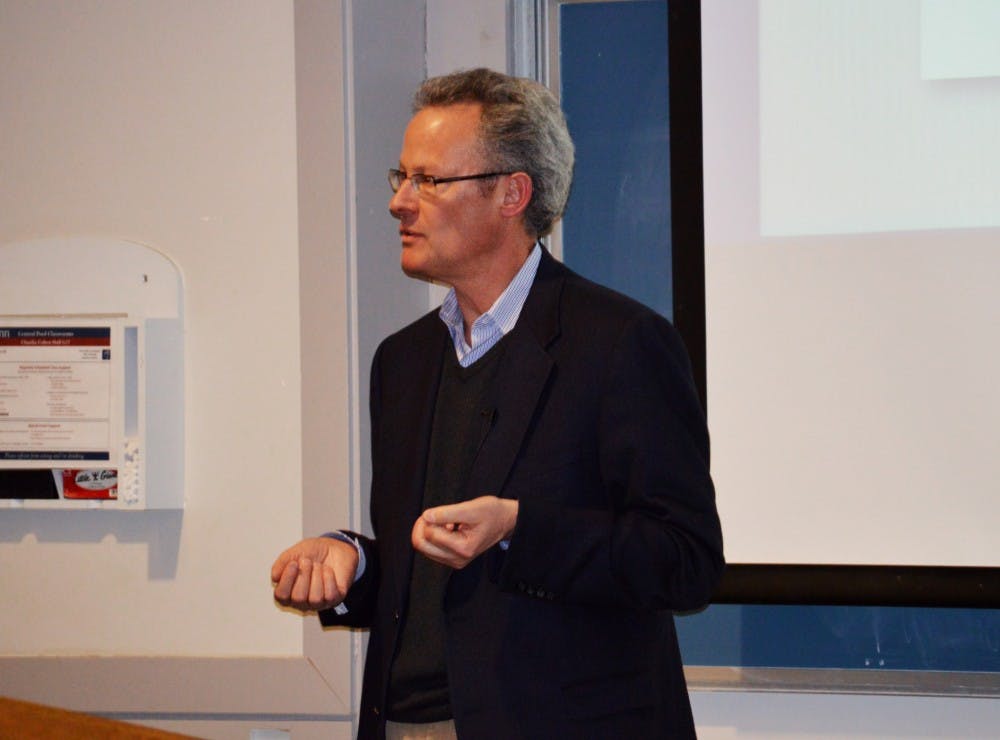You will probably check your phone before you reach the end of this article.
But author Nicholas Carr thinks that being distracted by technology is the result of our increasingly digital lifestyles. As part of the Benjamin Franklin Scholars Lecture Series, Carr spoke Tuesday afternoon about the effects of the internet and digital media on our everyday lives. Over 50 students and faculty members gathered in Cohen Auditorium to listen to Carr, who is a Pulitzer Prize finalist and New York Times bestselling author.
Drawing from his personal experience with the internet, Carr discussed noticeable personal changes in recent years. “After [reading] a few paragraphs, a few pages, I found I was getting antsy, and that I wanted more stimulation than the printed page,” Carr said. “This led me to wonder … is this change in the way I’m thinking produced by technology?”
On the one hand, Carr identified the internet as an “information-rich” but also “interruption-rich” environment.
“If you look at some studies that have been done about the effects of video gaming,” Carr said, “you find that they do seem to improve … visual acuity, your ability to keep track of lots things going on simultaneously and your ability to react to those things very quickly.”
Carr emphasized that the costs outweigh the benefits. The internet and digital media discourage “all types of thinking that actually require attention and that requires focus and concentration,” he said. “All our mental energy has tended to go into taking in as much stuff as possible as quickly as possible.”
In addition, Carr cautioned the audience about the potential negative effect of technology on memory. “The problem we are experiencing with the net, and new technologies in general, is that we are blocking our ability to move information from working memory to long-term memory,” Carr said. “And it turns out this is fundamental to the depth of your thought.”
“Having a rich intellect isn’t about grabbing individual bits of information when you need them all the time. It’s about weaving all of that stuff together into a higher level of thought,” he added. “That’s what allows us to think conceptually, allows us to think critically, and it’s a source of some of our most creative thinking.”
For many students in the audience, the subject matter hit close to home.
“There are clearly a lot of pros and cons to this new age of technology and how it is making us think,” College sophomore Samantha Klein said following the lecture. “But I’m still going to use Facebook and I’m still going to use everything, and I think most people will. But I think [Carr] just makes me think about how else I can think.”
As members of the audience increasingly began to whip out their phones and tablets toward the end of the lecture, Carr concluded with a quote by the novelist David Foster Wallace: “Learning how to think … means being conscious and aware enough to choose what you pay attention to and to choose how you construct meaning from experience.”



